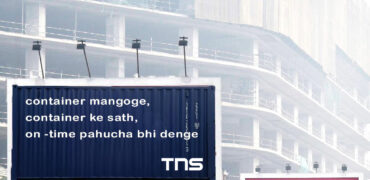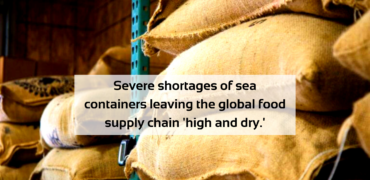In our experience, many U.S. merchants, exporters, and financiers don’t comprehend Incoterms rules.
They frequently don’t comprehend the definitions or the dangers and obligations of even their #1 sales terms that they’ve generally utilized. They also don’t see how Incoterms relate to payment terms.
One financier disclosed to us his bank doesn’t attempt to teach its clients on the right utilization of Incoterms because no one uses them anyway.
What’s going on with this image? By educating customers the most proficient method to utilize Incoterms accurately, a bank can keep clients out of genuine difficulty while making its life simpler also.
The wrong utilization of Incoterms comes about because of the misconception of the transportation terms existing in the United States. We have exchange terms characterized in the Uniform Commercial Code (UCC), which actually stay legitimate for homegrown exchange and to the most amazing aspect of my insight, have never been converted into another dialect. Some American organizations are quitting the UCC and utilizing Incoterms for homegrown exchange also.
Ex Works (EXW)
Exporters normally incline toward the Incoterm, Ex Works, since they believe it’s the simplest way with the least danger. All things considered, what can be simpler than saying to the purchaser, “The merchandise is at my back (or front) entryway, come and get them?”
Case 1
A Colorado organization got a huge request from an abroad purchaser. Since the organization was anxious to acknowledge this huge request, it offered a lofty markdown on the Ex Works value quote. The purchaser immediately concurred, however not long after conveyance the exporter found these merchandise selling at limited costs in a chain of U.S. retail locations, which was disrupting their own deals.
Obscure to the credulous exporter, the Ex Works term doesn’t need the purchaser to trade the merchandise by any stretch of the imagination, and redirection turns into a genuine danger. They took in a costly exercise. The organization needed to repurchase their own under-valued product off the racks to try not to contend with their own homegrown items.
Case 2
Another exporter got a letter of credit with the foreseen value quote, Ex Works. Be that as it may, the letter of credit required an onboard sea bill of replenishing from Oakland, California, to be introduced to the bank before it delivered the installment.
Consider the dangers. Imagine a scenario in which the purchaser never gets the products. Consider the possibility that the products become harmed, lost, or taken in course to Oakland. Without the reports, the exporter would never gather installment on the letter of credit although it met their obligations under the Ex Works quote.
This current exporter’s credit director requested that I lead an in-house class on letters of credit. In the wake of concurring, I asked, “For what reason do you need the preparation? Do you have another staff?” He answered, “No, we need to try not to rehash a new misstep.”
He expounded: “We made a shipment to Korea as of late. We can’t gather on the letter of credit because the cargo forwarder will not give us the bill of filling. Indeed, we have the motivation to accept the cargo forwarder sent the bill of filling straightforwardly to the purchaser, and the purchaser has the products.”
“What Incoterm did you consent to?” I inquired.
“Our what?” he answered.
“Your term of the offer, was it Ex Works?”
“Truly,” he said, “indeed it was.”
“Sir, you needn’t bother with preparing on letters of credit, you need preparing on Incoterms,” I shared.
With the Ex Works quote, the purchaser gets the cargo forwarder to get and deliver the products. The cargo forwarder would just adhere to directions from the purchaser. For this situation, the cargo forwarder consented to the purchaser’s guidelines to send the bills of filling straightforwardly to Korea, and the purchaser claimed the merchandise without paying for them. Would you be shocked to get familiar with this exchange that occurred during the tallness of the Asian financial emergency?
Case 3
Another exporter came into our manage an account with records hoping to gather installment quickly on his letter of credit. After a brisk check of the archives, we found he required an onboard sea bill of the filling showing shipment from an east coast port. All things considered, he introduced a waybill gave by a shipping organization indicating shipment from Denver.
Indeed, he effectively satisfied his duty characterized by Ex Works however was frightened to discover the purchaser’s cargo forwarder could undercut his capacity to gather installment on the letter of credit. Consider the possibility that the cargo forwarder doesn’t give the sea bill of filling before the credit terminates.
Free On Board (FOB)
Case 4
Another abused term is FOB. Americans have an incredible love illicit relationship with FOB. Our own UCC licenses the utilization of FOB here, there, and all over. Nonetheless, Incoterms 2010 limits the utilization of FOB to sea shipments as it were.
Astoundingly, I keep on seeing letters of credit utilizing the term FOB Denver, Colorado. Indeed, even with a 100-mile sea from our most elevated mountains, I still can’t seem to see a sea vessel in Colorado!
While exporters may have the right records that agree with the letter of credit, how might they safeguard their activities if there should be an occurrence of a question? Unquestionably not by depending on the definition for FOB found in Incoterms!
Also, other Incoterms can cause issues if not comprehended. Worldwide dealers and their financiers should comprehend their duties and utilize the right Incoterm that dovetails accurately with the terms and states of letters of credit or other concurred installments.







